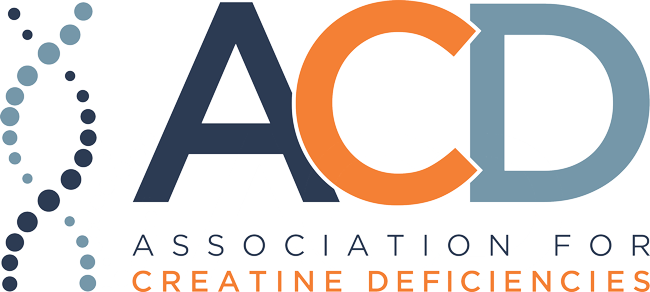For Patients
CreatineINFO Registry

Welcome!
The CreatineINFO Registry is an online patient- and caregiver-reported registry for people with Cerebral Creatine Deficiency Syndromes (CCDS). It is sponsored by the Association for Creatine Deficiencies and hosted by the National Organization for Rare Disorders (NORD®) on their IAMRARE® platform.
What is a Patient Registry?
A patient registry is a collection of standardized information about a group of patients who share a condition. The information may be used for a variety of purposes such as conducting natural history studies and supporting disease-specific clinical trial recruitment.
Why is the CreatineINFO Registry important?
- Supports the design of clinical trials that explore new rare disease treatments;
- Describes the people who have CCDS and how CCDS changes over a person’s lifetime;
- Provides valuable information to doctors, scientists, and industry to help them develop treatments and improve patient outcomes for the small CCDS community;
- Shares community-reported recommendations and standards of care to improve the quality of life and outcomes of people with CCDS;
- Identifies people with CCDS who might be willing to take part in other research studies or clinical trials. You will be able to choose whether you want to hear about these other studies.
What types of data will be collected in the CreatineINFO Registry?
The CreatineINFO Registry collects data on the following topics:
- Socio-demographics
- Medical history and diagnostics
- Treatment and disease progression
- Management of care
- Quality of life
- Genetic and laboratory reports
Is the data secure?
The CreatineINFO Registry follows strict government guidelines to assure patient information is protected. The platform is served over HTTPS, which means that the data is encrypted when being sent from the user’s browser to the NORD servers. The data is also kept encrypted in the NORD database. Communications between the registry platform application server and the database are also encrypted. As with any information one provides electronically, there is a very rare chance that privacy could be compromised. However, the registry and the security measures minimize the chance of this occurring.
Video links:
Janet Woodcock, Former Director CDER FDA on NORD Registry Program
